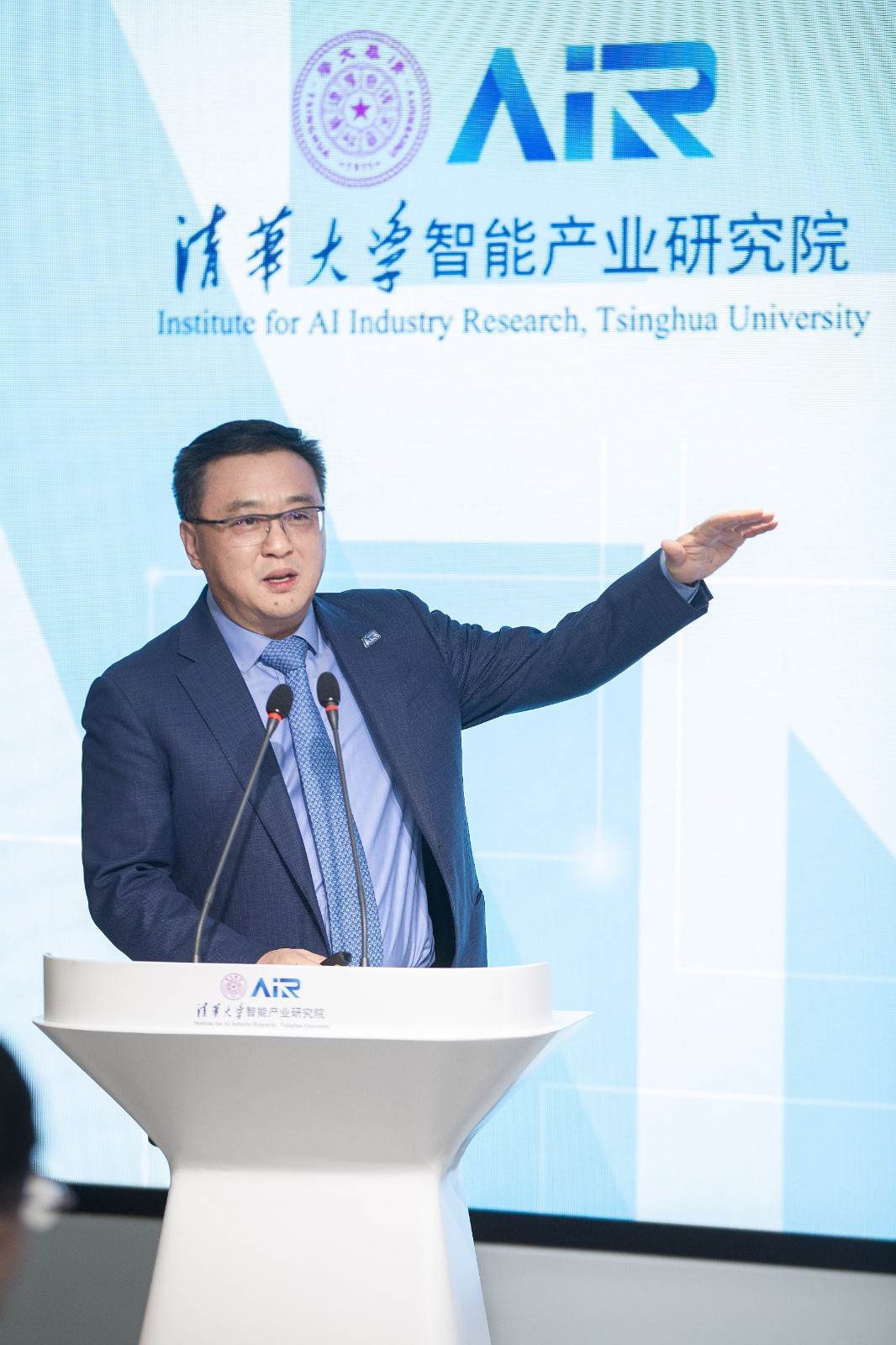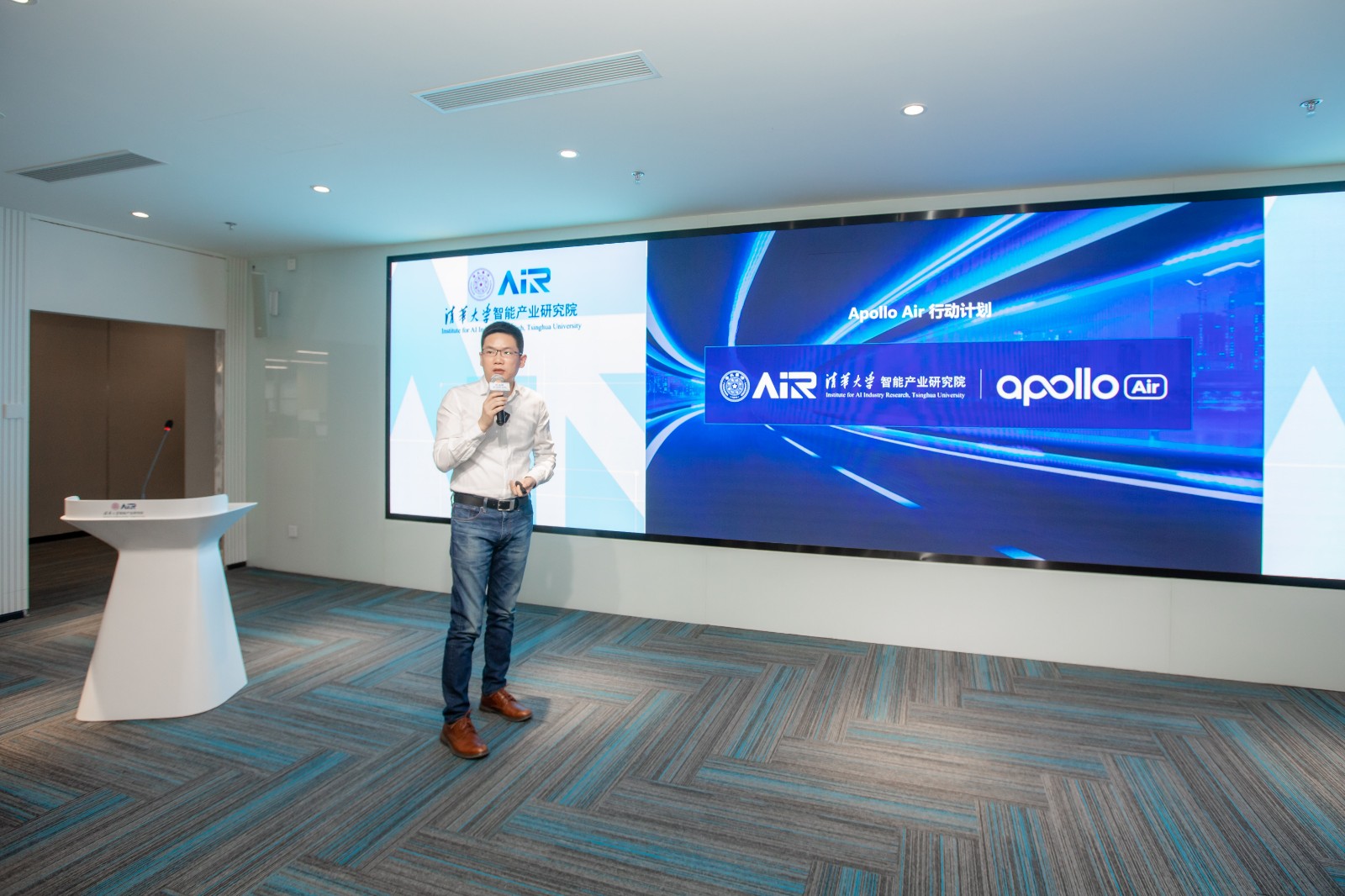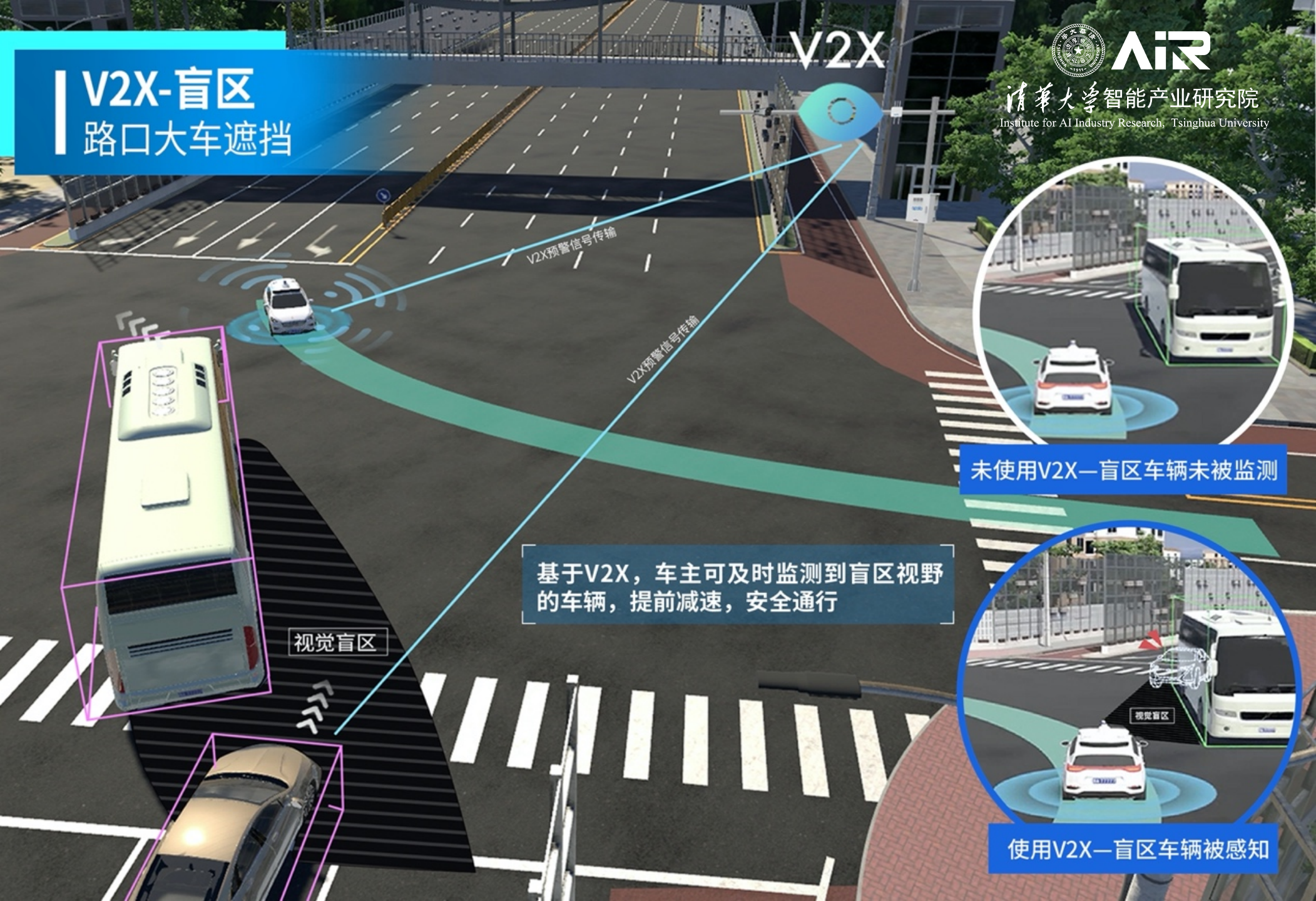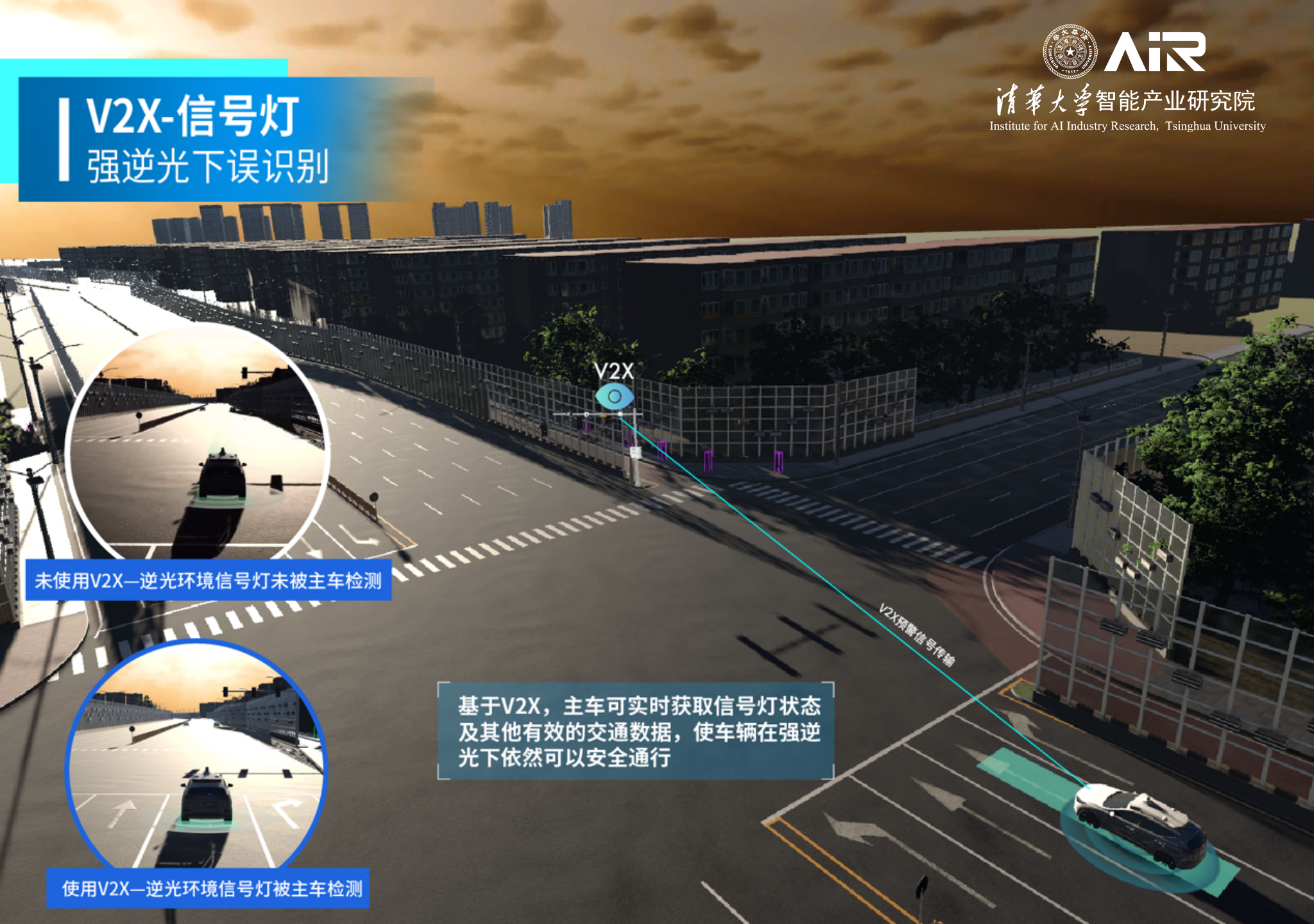On May 13, AIR unveiled project Apollo Air together with Baidu, China’s top autonomous driving company, at the third AIR salon, hosted by Professor Ya-Qin Zhang. Apollo Air is the world’s first and only vehicle-road collaboration technology that uses pure road-side perception ability to truly realize L4 level automatic driving closed-loop of open road continuous network.


Apollo Air has three distinct features: pure road-side perception to realize autonomous driving, continuous feedback to support vehicle-road coordination products, open source to benefit the industry.
According to Dr. Ji Tao, General Manager of Intelligent Transportation Product Development at Baidu, Apollo Air innovatively enables a high degree of coordination between sensor-less vehicles, smart roads and data clouds through a series of miniature roadside sensors with 5G and V2X wireless communication technology. Simply speaking, Apollo Air can supersede the ingrained perception system of an autonomous vehicle by commanding its autonomous driving capabilities through vehicle-road-cloud coordination. Compared with single-vehicle intelligence, Apollo Air is more complex and has a longer system chain. With Apollo Air empowering road-end network products, a vehicle with limited computing power and zero sensor can also partly achieve high-level autonomous driving capability – in other words, a normal vehicle can be upgraded to resemble a driverless one.
Baidu Intelligent Transportation team and AIR tested Apollo Air’s capabilities in L4 autonomous driving scenarios at several upgraded intersections in Beijing, Guangzhou, and Cangzhou. Going forward, Baidu will gradually integrate parts of Apollo Air’s evolving road sensing capabilities within mass-production-ready V2X offerings and provide reliable road sensing data for robotaxi operation and advanced driver-assistance systems.

AIR and Baidu’s collaboration on Apollo Air is in line with the industry development, as we enter the era of autonomous driving and large-scale business operation. It is also a comprehensive upgrade of the existing vehicle-road collaboration technology. Secure autonomous driving is only possible highly reliable and accurate roadside perception to strengthen vehicle-road coordination. “Apollo Air enables vehicle-road coordination to light up single-vehicle intelligence in the darkness,” said Dr. Ji Tao.
Following up, AIR and Baidu will be releasing R&D data and use cases of Apollo Air regularly under open source and open standards principles. By clarifying the infrastructural technical conditions that meet the demand for autonomous vehicles, our goal is to build Apollo Air in the form of an industry-wide sharing platform.
“AIR has been committed to breakthroughs in core AI technologies, and Apollo Air is an exploration of the V2X field in China,” said Dr. Ya-Qin Zhang, Dean of AIR. In the future, AIR will further collaborate with Baidu in various fields, including technology R&D and talent development.
Dr. Ji Tao also emphasized the value of single-vehicle intelligence vehicle-road coordination. Single-vehicle intelligence sets the base for autonomous driving, but its perception ability cannot deal with long-tail problems in complicated scenarios. Meanwhile, production of driverless vehicles remains costly in the short term, making mass commercial production of driverless vehicles difficult. Dr. Ji Tao believes that single-vehicle intelligence vehicle-road coordination is optimal solution to this problem. Beyond-visual-range perception complements the perception ability of L3 and L4 autonomous driving, making it safer and more smarter. Therefore, for autonomous driving to be implemented on the ground, these two elements are indispensable.

That also asks high stability and reliability of vehicle-road coordination technology. However, most autonomous vehicles rely entirely on their embedded perception systems to navigate through traffic, leaving limited capacity to fully examine possible problems and defects of roadside sensing. That’s why we jointly launched Apollo Air, the most advanced V2X project to provide reliable safety redundancy for autonomous driving.
There has been a rise in demonstration zones for developing V2X and intelligent connectivity platforms over the past few years in China. In fact, the Ministry of Industry and Information Technology recently laid out its official positioning for autonomous vehicles and connectivity empowerment, namely the “bilateral approach, coordinated development” strategy, to ramp up the construction of V2X infrastructure. As a pioneer and industry leader in developing V2X road infrastructure, Baidu debuted the ACE Transportation Engine last April. This full-stack solution has since won multiple bids for smart transportation projects across 30 cities, accumulating over 10 million kilometers of road testing.


